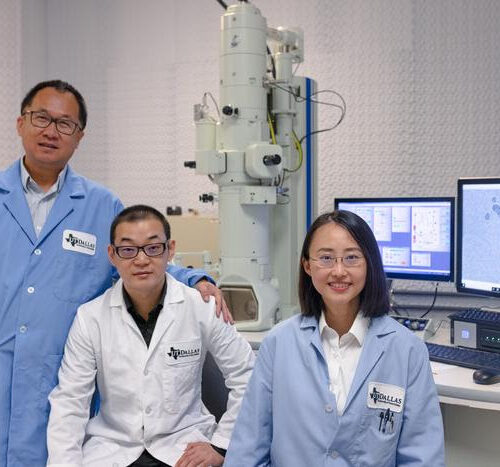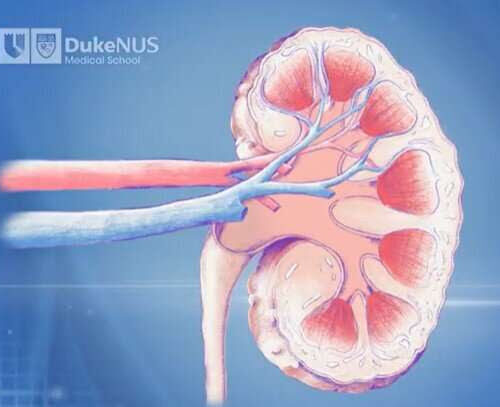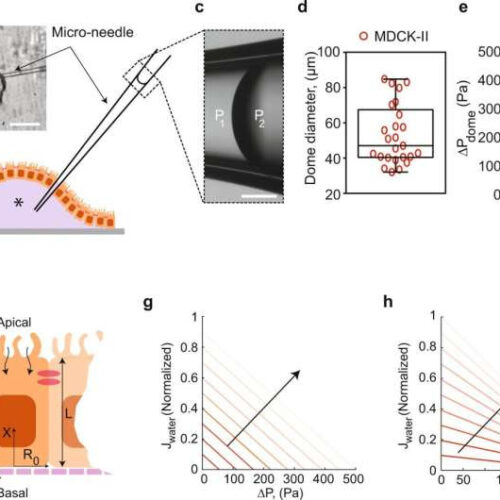UNIVERSITY OF TEXAS AT DALLAS IMAGE: FROM LEFT: UNIVERSITY OF TEXAS AT DALLAS RESEARCHERS DR. JIE ZHENG, YINGYU HUANG PHD’20 AND DR. MENGXIAO YU RECENTLY PUBLISHED A STUDY IN NATURE NANOTECHNOLOGY DESCRIBING A PREVIOUSLY UNKNOWN SELF-RENEWAL PROCESS IN KIDNEY CELLS. CREDIT: UNIVERSITY OF TEXAS AT DALLAS University of Texas at Dallas scientists have discovered a...
Tag: <span>kidney cells</span>
Scientists first in the world to regenerate diseased kidney cells
by Federico Graciano, Duke-NUS Medical School Credit: Duke-NUS Medical School In a world first, scientists at Duke-NUS Medical School, the National Heart Center Singapore (NHCS) and colleagues in Germany have shown that regenerative therapy to restore impaired kidney function may soon be a possibility. In a preclinical study reported in Nature Communications, the team found that blocking a...
Study reveals that kidney cells don’t filter blood, they pump it
by Gina Wadas, Johns Hopkins University Validation of ΔP in epithelial domes and theoretical pump performance curves. a Schematic of micro-needle inserted into a fluid filled epithelial dome. Asterisk indicates lumen side in the dome schematic (b). c Dashed rectangle shows phase-contrast image of oil-media interface in the micro-needle. The curvature of the interface was...
Exome sequencing provides genetic diagnosis for some with CKD
Emily E. Groopman, from Columbia University in New York City, and colleagues conducted exome sequencing and diagnostic analysis for 3,315 patients with chronic kidney disease (two cohorts). A total of 3,037 patients were over age 21 years and 35.6 percent were self-identified as non-European ancestry. (HealthDay)—Genes are responsible for approximately one in 10 cases of chronic kidney...
Better diabetes treatment? Artificial beta cells from human kidney cells
Diagram of a HEK-beta cell. Extracellular D-glucose triggers glycolysis-dependent membrane depolarization, which activates the voltage-gated calcium channel, resulting in an influx of Calcium ions, induction of the calmodulincalcineurin signaling cascade, and PNFAT-mediated induction of insulin secretion. Researchers led by ETH Professor Martin Fussenegger at the Department of Biosystems Science and Engineering (D-BSSE) in Basel have...



